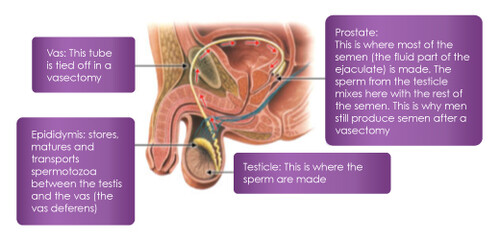Male Fertility
Understanding fertility in men
Conceiving a baby is influenced by a number of factors, including healthy sperm. After a woman’s age, male infertility is the second biggest cause of pregnancy delay and affects almost half of all couples having trouble conceiving.
Problems with male fertility account for about 40% of all cases of infertility. Find out how the male reproductive system works, and the impact of low sperm motility.
The good news is that the most common causes of male infertility are easily diagnosed and successfully bypassed with effective fertility treatments including IVF with Intracytoplasmic sperm injection (ICSI).
Sperm Production
Most causes of male fertility problems are related to defects in the quality or quantity of sperm produced or disruption to the sperm emission. Find out more about sperm production…
Male Fertility Predictor
Use our Male Fertility Predictor to get an indication of your sperm quality, and then read the helpful tips on how to improve your fertility. Try our male fertility predictor...
Producing sperm
Sperm production starts in the testes, where the hormone testosterone is also produced. An average of 100 million sperm are produced every day in healthy young men. After sperm are produced, they will need to travel along a long channel system starting at the epididymis, maturing along the way, before exiting via ductal structures called vas deferens and the urethra.
The entire process of sperm production and maturation takes just under three months. Any serious illness may affect sperm production for up to three months.
To successfully fertilise an egg, the sperm will need to have good motility (be able to move its tail) to propel itself through cervical mucus to then travel through the uterus and fallopian tube to reach the egg. It will also need to be normally shaped in order to penetrate the outer shell of the egg to deliver the genetic package contained in its head.

What causes infertility?
Infertility is defined as a couple not conceiving after 12 months of regular unprotected sexual intercourse.
Female age is the most significant factor affecting a couple’s chance of conceiving. In 40% of infertile couples, the cause of infertility is attributed to a sperm factor. In another 40% of infertile couples, the cause of infertility is found within the female reproductive system, such as ovulation failure, tubal disease or endometriosis. One third of all infertile couples will have a combination of female and male factor infertility.
Andrology referral
Watch our Male Fertility videos
Discover all you need to know about sperm production, how to boost your fertility, and treatments available to help increase your chances of conceiving. Watch the male fertility playlist on our new YouTube channel, Fertile Minds.
